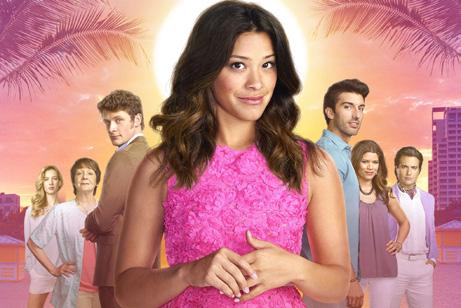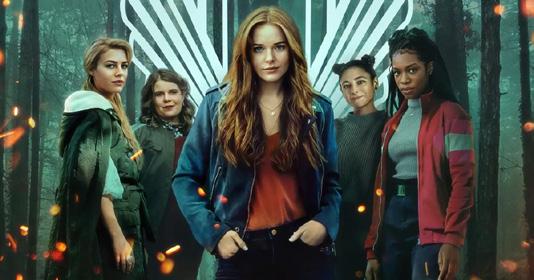
5 minute read
Hollywood versus the patriarchy
Hollywood
VERSUS THE PATRIARCHY
Advertisement
bella reeves
The stereotypical female character in media has tainted my views on true feminism and what others may consider forward-thinking. During the pandemic, I binge-watched countless shows and movies. Using my self-made rating method, which integrates the Bechdel Test rating system, I analyzed how accurately women are portrayed within the scripts and scenes of shows and movies.
The Bechdel Test, or “Bechdel Rule,” is the method in which one judges a show or movie using three criteria: “(1) it has to have at least two women in it, who (2) talk to each other, about (3) something besides a man.” Movies that don’t pass the Bechdel Test include “WALL-E,” “Ratatouille,” “Fight Club,” and many others.
Before we rate any shows using my new method, we must first understand what qualifies as accurate women representation in the media.
Despite the large social advances made since the early 1900s, subtle sexism is still very prevalent in the United States, especially in the shows we watch. For example, the phrase “you’re not like most girls,” is the coined compliment used to flatter the female lead; although they are suggesting she is unique, it implies she’s more masculine than feminine, and further dismisses the importance of her gender.
Growing up, girls are introduced to the world of Disney princesses and taught to believe that their happily ever after is finding Prince Charming. We must be mindful of these stereotypes in the shows we watch as they directly impact our society’s behavior.
In a 2017 poll conducted by the Pew Research Center, it was found that most Americans agree that women face more pressure than men to be great parents and appear physically attractive, while men feel they have to financially support their loved ones and have a successful career.
In some action movies, the female lead has no interesting qualities other than her model figure and beautiful face. Movies such as “The Princess Bride” or “Mission: Impossible III,” present actresses Robin Wright and Keri Russell as none other than a glorified damsel in distress, a seemingly helpless, beautiful girl whimpering for her male counterpart to save the day. Despite this, Wright and Russell have successfully conveyed strong female characters in “House of Cards” and “The Americans.”
In contrast to overly-emotional female characters that carry no redeeming qualities other than their ability to scream for help, the iconic callous career woman with zero emotion is another stereotypical female character portrayed in the shows we watch. Movies such as “The Devil Wears Prada” teach our society that women can’t have it all, that the career-focused woman sacrifices all other walks of life, especially love, to achieve her dreams.
As we’ve discussed the major female stereotypes in the shows we watch, we will now acknowledge the shows and movies that I believe portray women accurately and artistically.
While some may believe that the stereotypes I’ve listed above add to the cheesiness and humor of movies, I strongly disagree. Movies and shows such as “Crazy Rich Asians” and “Jane the Virgin,” include realistic female-leads who not only have an established career, but are intelligent, charismatic, and have a healthy love life as well.
The reason these two productions are beautifully done, in terms of writing and accurate women representation, is solely due to the subtlety of feminist undertones in the script and how they are portrayed. The movie “Crazy Rich Asians,” with female lead Constance Wu alongside Awkwafina, Gemma Chan, and Michelle Yeoh, is what we should call a movie movement. The importance of tone in movie production is critical; it is done perfectly in this film. The tone of female empowerment is carried throughout the entire story, whether it be the women-led households or the new generation of immigrants, “‘Crazy Rich Asians’ is a Tribute to the Power of Single Mothers and Independent Women,” as the headline of a /Film article states.
Rather than being a part of the dialogue, the movie portrays the women to be more realistic. Another film critique
article stated in its headline. “‘Crazy Rich Asians’ Uplifts Women As Resilient, Complex and Resolutely Human,” and I couldn’t agree more.
The CW show “Jane the Virgin,” takes the telenovela theme for a spin. The main character portrayed by actress Gina Rodriguez, Jane Villanueva, is a smart, independent young woman, battling the complications of being accidentally artificially inseminated. While keeping the telenovela theme alive, the show also runs feminist ideals within the show as well, introducing and redefining cliché masculinity and feminity. The Villanueva household of three amazing, Latina women depicts a beautiful matriarchy that introduces topics such as body positivity, prochoice, and immigration reform.
Furthermore, shows that we should consider accurate women representation are shows with multiple themes that aren’t centered around the female lead’s feminism. Feminism should be within the portrayal of characters and the script, rather than being its main theme.
Modifying the Bechdel Test, I believe we should add a fourth criterion: the accuracy of how the woman is portrayed.
Integrating my own rating system into the Bechdel Test would allow audience members to fully understand how femininity is portrayed on the silver screen. Not only should every movie pass the Bechdel Test, but it should also portray females with more realistic expectations.
As we continue on into the future of show and movie production, it is important to remind ourselves that while female stereotypes are representative of the culture of hit films such as “The Wolf of Wall Street,” where all the women are trophy wives, or “How to Lose A Guy in 10 Days,” in which the protagonist leaves her job to be with a man, we need to reform the film world and introduce more modern themes, where the female character can win more than just a wedding ring.
Jane the Virgin 5/5
Does it pass the Bechdel Test? YES
POC cast Includes themes other than feminsism
the queen’s gambit 5/5

Does it pass the Bechdel Test? YES
Coming-of-age story Strong female lead
the half of it 5/5

Does it pass the Bechdel Test? YES
Amazing female perspective Beautiful coming-of-age story
crazy rich asians 4.5/5

Does it pass the Bechdel Test? YES
Strong female lead No toxic masculinity
riverdale 3.5/5

Does it pass the Bechdel Test? YES Accuracy of female portrayal wavers Female diversity treated as non-event
fate: the winx saga 2.5/5

Does it pass the Bechdel Test? YES










